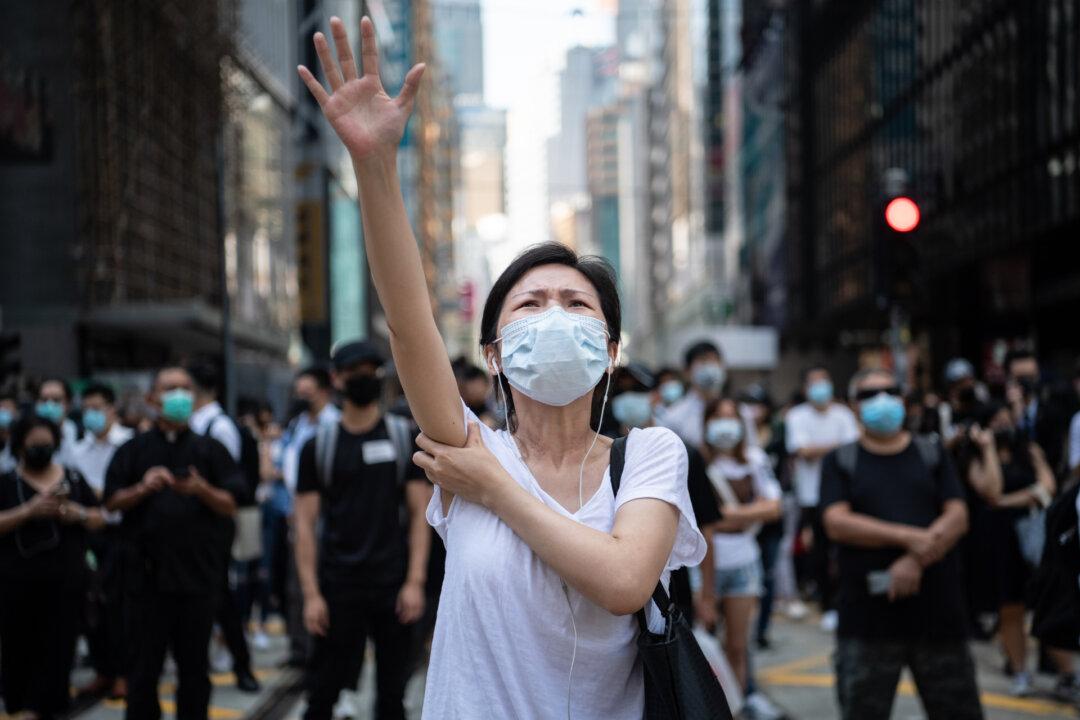An agency within Beijing’s rubber-stamp legislature has openly criticized a Hong Kong court ruling to overturn the city’s mask ban, claiming that it was invalid. The announcement raised public concern that Beijing was overstepping the territory’s independent judiciary.
The legislative affairs commission of China’s National People’s Congress (NPC), along with the Hong Kong and Macau Affairs Office (HKMAO), the highest office in Beijing for managing the two former European colonies, issued statements on Nov. 19 criticizing the ruling.





